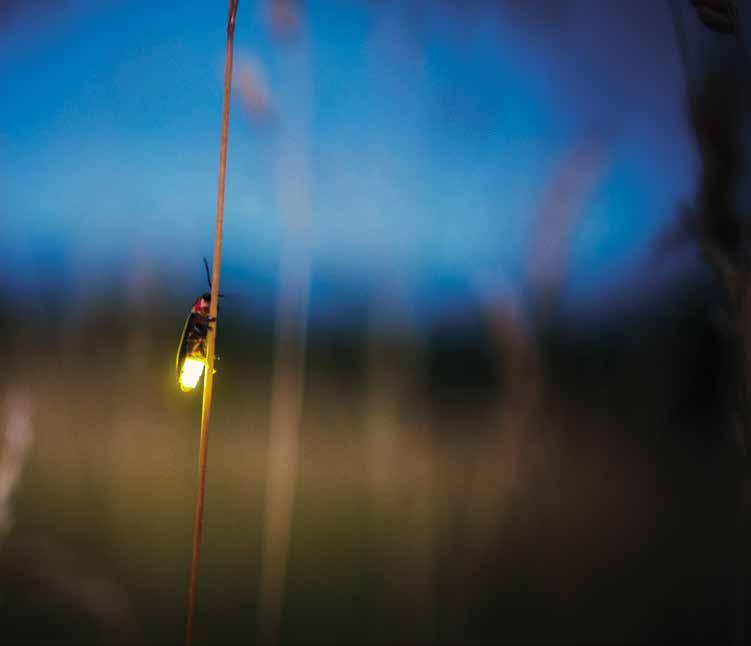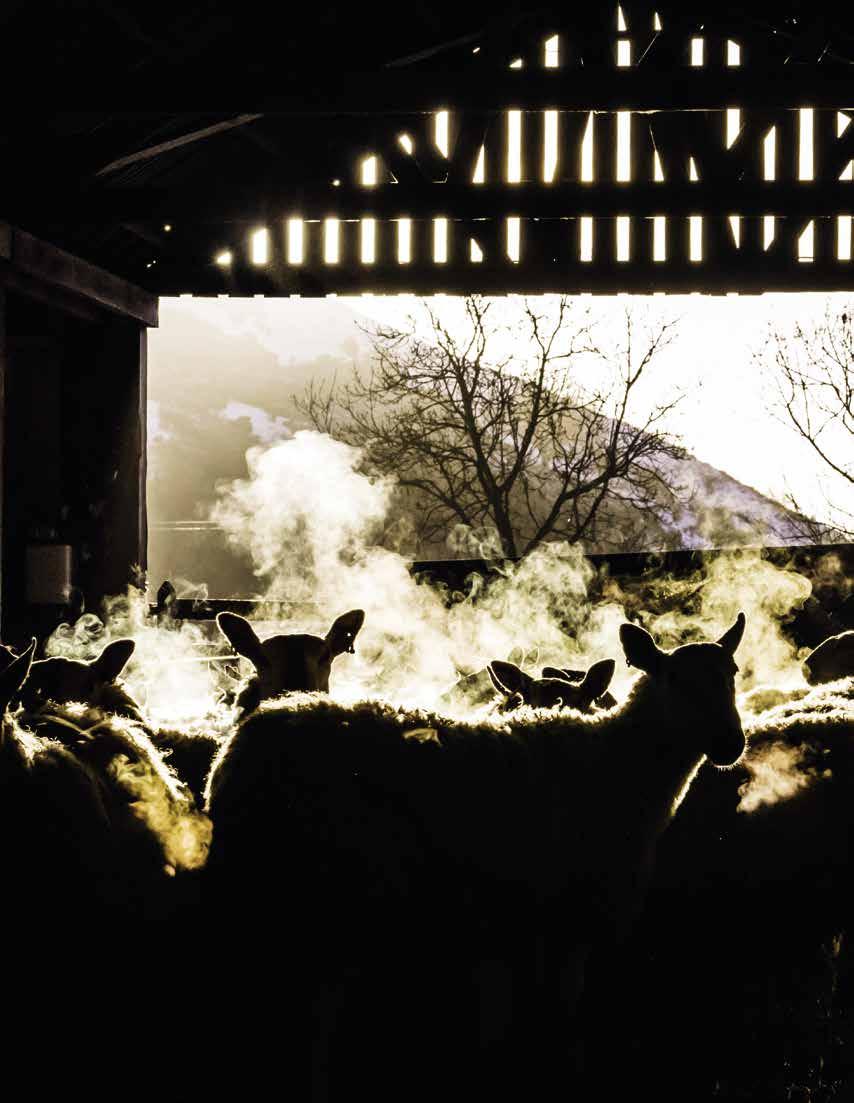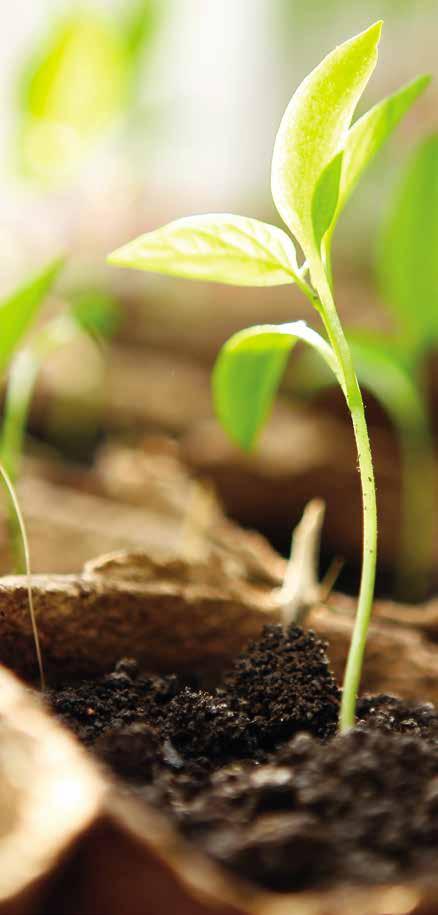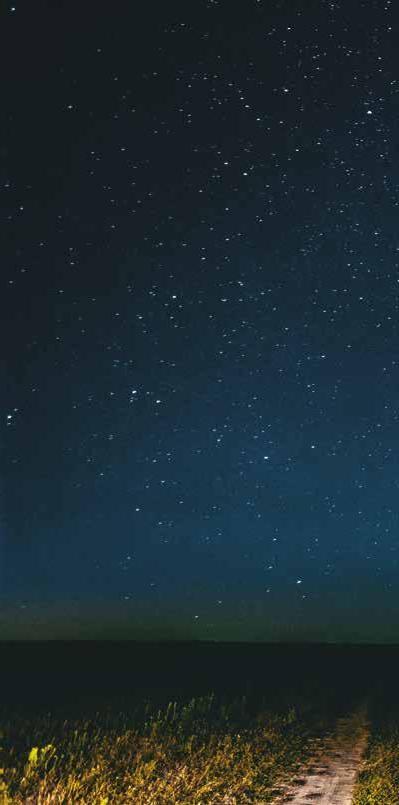
1 minute read
The See Far Place
by Denise Lajimodiere
Advertisement
— Msgr. J. O. Plessis
(instructions given to missionary priests)
On the highest butte
in the Turtle Mountains
a tall cross has been planted.
The Ojibwe call the butte Atacaamaabiwin, the place from
which to see far. Scouts watched o
ver plains to the south
flat as a stretched and staked
buffalo hide, waiting for nadowessi
and when spotted sounded
an alarm by lighting a fire
signaling others deep in the hills,
brush and tree covered
backs of turtle’s carapace.
-
Butte St Paul
named by Reverend George A. Belcourt,
January 25, 1850
when he was caught in a blizzard
and hunkered down by the butte.
-
The steep, rocky path
lined with swollen chokecherries,
winds its way to the top.
Aroma of sage and sweet grass waft
from freshly cut fields below.
-
A tall stone and cement cairn emerge,
a defiant red cloth covers the high cross,
Sun Dance sage crowns tied to four corners,
eagle plumes dance in the rising heat
as many eyed dragonflies keep watch, vigilant.
DENISE LAJIMODIERE is an enrolled citizen of the Turtle Mountain Band of Chippewa Indians, Belcourt, North Dakota. She is a poet, scholar, dancer, and an Ojibwe birch bark biting artist. She recently retired as an associate professor at North Dakota State University and resides on the Turtle Mountain Reservation.










